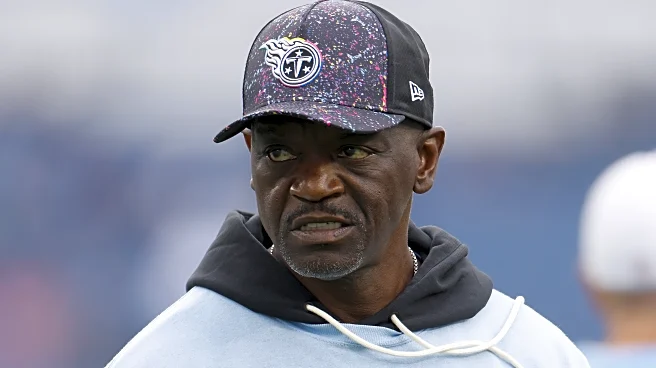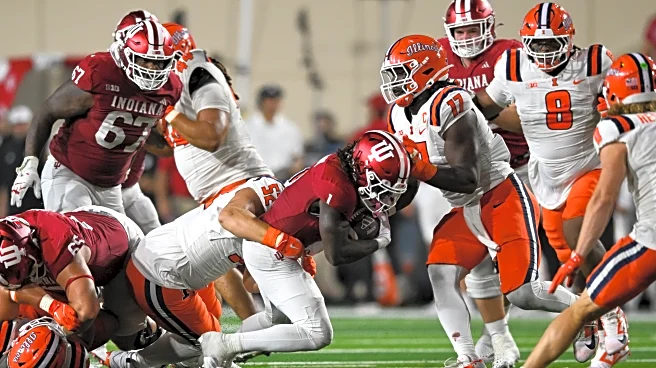Rapid Read • 8 min read
The U.S. Olympic and Paralympic Committee (USOPC) has revised its policies to effectively bar transgender women from participating in women's sports. This decision follows pressure from President Trump and various Olympic sports organizations. The USOPC's updated policy does not explicitly mention transgender athletes but aligns with President Trump's 'Keeping Men Out of Women's Sports' executive order issued in February. The policy change was communicated in a letter from USOPC leaders, including Chief Executive Sarah Hirshland and President Gene Sykes, emphasizing compliance with federal law and the Ted Stevens Act, which mandates promoting athlete safety and competitive fairness. The USOPC has instructed sport governing bodies to update their policies accordingly.
AD
The USOPC's policy change is significant as it reflects ongoing debates about transgender athletes' participation in sports, balancing inclusivity with competitive fairness. This decision could impact the landscape of women's sports in the U.S., potentially influencing other sports organizations to adopt similar policies. The move also highlights the influence of federal directives on sports governance, particularly under President Trump's administration. The policy could affect the participation of transgender athletes in upcoming events, including the Los Angeles Summer Olympics in 2028, and may lead to broader discussions on gender identity and sports.
The USOPC's decision may prompt reactions from various stakeholders, including advocacy groups for transgender rights, sports organizations, and political leaders. There could be legal challenges or calls for policy revisions to ensure inclusivity while maintaining competitive fairness. As the Los Angeles Summer Olympics approach, the USOPC will need to navigate potential conflicts between federal policies and international Olympic standards. The organization may also face scrutiny regarding its relationship with the Trump administration and its impact on sports governance.
The USOPC's policy change raises ethical and cultural questions about gender identity and sports. It may influence public discourse on the rights of transgender individuals and the definition of fairness in competitive sports. The decision could lead to long-term shifts in how sports organizations address gender inclusivity and the role of federal influence in sports policy. Additionally, it may affect the perception of the U.S. in international sports communities, particularly regarding its commitment to inclusivity and diversity.
AD
More Stories You Might Enjoy











